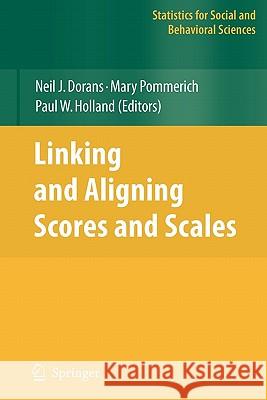Linking and Aligning Scores and Scales » książka
Linking and Aligning Scores and Scales
ISBN-13: 9781441923875 / Angielski / Miękka / 2010 / 396 str.
In their preface to the second edition of Test Equating, Scaling, and Linking, Mike Kolen and Bob Brennan (2004) made the following observation: "Prior to 1980, the subject of equating was ignored by most people in the measurement community except for psychometricians, who had responsibility for equating" (p. vii). The authors went on to say that considerably more attention is now paid to equating, indeed to all forms of linkages between tests, and that this increased attention can be attributed to several factors: 1. An increase in the number and variety of testing programs that use multiple forms and the recognition among professionals that these multiple forms need to be linked. 2. Test developers and publishers, in response to critics, often refer to the role of linking in reporting scores. 3. The accountability movement and fairness issues related to assessment have become much more visible. Those of us who work in this field know that ensuring comparability of scores is not an easy thing to do. Nonetheless, our customers--the te- takers and score users--either assume that scores on different forms of an assessment can be used interchangeably or, like the critics above, ask us to justify our comparability assumptions. And they are right to do this. After all, the test scores that we provide have an impact on decisions that affect people's choices and their future plans. From an ethical point of view, we are obligated to get it right.











